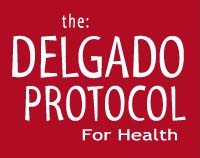Unlock Lasting Weight Loss and Optimal Health: Say Goodbye to Ineffective Diets
Discover the secret to achieving lasting weight loss and optimum health without resorting to short-lived diets that don’t work. In the United States, over two-thirds of adults struggle with being overweight, and the truth is, that trendy diets have proven to be largely unsuccessful. Studies reveal that a staggering 95% of people who shed weight through dieting regain it within 1 to 5 years, often ending up even heavier than before. UCLA research demonstrates that dieting can harm your health, with the majority of dieters being better off without embarking on restrictive weight-loss programs.

Why Traditional Diets Fail
Traditional diets fail for several reasons. Firstly, they imply temporary adjustments to eating habits, providing short-term results. However, sustainability is a challenge, as most diets are not designed for the long run. Caloric restrictions lead to increased efficiency in the body, lowering metabolic rates and causing muscle loss. Additionally, the restrictive nature of many diets triggers hunger signals, often resulting in compulsive overeating and poor food choices—leading to the infamous Yo-Yo dieting cycle.
Embracing the Non-Diet Approach: Dr. Nick Delgado and Michael Greger’s Solution
Renowned author and lifestyle medicine expert, Michael Greger, MD, advocates for a groundbreaking solution in his book “How Not to Diet.” Supported by extensive research, this non-diet approach centers on adopting a whole foods plant-based diet (WFPBD). Unlike traditional diets, the WFPBD is not a temporary fix; it encourages consuming unprocessed plant foods while minimizing or eliminating packaged foods, animal products, and vegetable oils.
Scientific Validation: The BROAD Study
The BROAD study, published in the Nature Journal, in March 2017, conducted a randomized controlled trial using a WFPBD as a weight-loss intervention. Participants, aged 35 to 70, experienced significant weight loss (average of 19 pounds) and reduced cholesterol levels after just 3 months. Surprisingly, participants lost even more weight (27 pounds) six months later and maintained it a year after the study. Numerous studies highlight the broader health benefits of plant-based eating, including a reduction in mortality rates and prevention or reversal of chronic diseases.
Supplementing Non-Dieting Techniques
Addressing hormonal imbalances and adrenal fatigue can enhance weight loss. For estrogen dominance, DIM 855, a natural compound found in cruciferous vegetables, can restore balance without the need for excessive vegetable consumption. Adrenal DMG, designed to nourish adrenal glands, is beneficial for those suffering from adrenal fatigue. Additionally, considering a B-12 supplement, incorporating metabolism-boosting spices, and consuming negative-calorie foods can complement your non-diet weight loss journey.
Transitioning to a Whole Food, Plant-Based Lifestyle
Whole food, plant-based eating is a lifestyle, not a quick fix. If drastic changes seem overwhelming, focus on gradually increasing whole plant food intake while allowing flexibility for other foods. Progress at your own pace, making small adjustments over weeks or months. Be kind to yourself, understanding that occasional deviations are natural. With time, you’ll notice positive changes in your well-being, naturally gravitating towards a healthier, plant-based diet.
Join us on a journey to holistic well-being. Explore our online courses designed to guide you to a healthier, happier, and more successful life for you and your family.
References:
- Psychology Today
- UCLA Newsroom
- Nature Journal
- Journal of General Internal Medicine
- PubMed Central
- PubMed Central
Are you ready to embrace a non-diet approach for lasting health?
Would you like to join me?
See our online courses to be guided to your success: Live to be healthier, happier, and more successful for you and your family.




